Dear Classical Wisdom Reader,
Sometimes history can stare you in the face… literally. While the exploits and adventures of the famous 4th century BC Macedonian king, Alexander the Great, may seem like they should be buried in text books in dusty libraries, the unintended consequences of his actions may still be alive and well today…
This week’s article delves into the fascinating moment when West met East and its surprising legacy in the here and now.
But before you wade into the Greco-Bactrians and the Indo-Greeks, I’d like to get a bit of feedback from you, dear reader. As you can see, I’m writing to you from our new platform on Substack. This is a fresh chapter for us, one in which we want to dedicate to bringing you the highest quality articles, podcasts, webinars and more. To do so though, your input is essential…
So please let me know: what type of articles are you most interested in?
Do you want more Stoicism, Aristotle and the Pre-Socratics? Do you want to read about the ancient gods and goddesses, the age of heroes, and the works of great dramatists? Or are you interested in the history of Greece and Rome, their enemies and allies, the powerful men and women who changed the course of history? Or perhaps… it all?
Feel free to answer in our poll here (I’m testing this cool feature out!)… or comment below the post.
Thank you again for your interest in the Classics! I’m thrilled you can be part of our mission to bring ancient wisdom to modern minds. I hope you enjoy this inaugural newsletter. Welcome!
All the best,
Anya Leonard
Founder and Director
Classical Wisdom
New Event: August 27th, Noon EST
If you're interested in how Greek philosophy and the Socratic Method can help us think more clearly and live better lives today, this is the online event for you!
Featuring renowned philosophers, psychiatrists and cognitive therapists as well as award winning authors… who will share with you their knowledge and captivating insights into the Socratic Method, including effective and practical advice and strategies to think critically, reason more clearly, and protect yourself against misleading information and sophistry.
Register here for your ticket, and please remember all proceeds go to the reconstruction of Plato’s Academy:
https://socratic-method.eventbrite.ca
Alexander’s Progeny: The Greco-Bactrians and the Indo-Greeks
By Benjamin Welton
From seething mettle Alexander's sword dawned on the land To blaze on high, and melted down the mountain of Alvand. -- “At Napoleon’s Tomb,” Muhammad Iqbal
The verdant mountains of the Hindu Kush, with their ice white tops, hides one of the contemporary world’s most mysterious peoples. Here, in a province once called Kafiristan because of the pagan, pre-Muslim practices of the inhabitants, lives the Nuristani people. For centuries, many have noted that the Nuristanis, unlike their Pashtun, Tajik, and Uzbek neighbors, frequently have light-colored eyes, blond to brown hair, and light complexions. The Nuristanis, like the Kalash pagans of Pakistan, are members of the broader Dardic population. The Dards claim partial descent from the Greek-speaking Macedonian troops commanded by Alexander the Great.
How could this be? How could mountain tribes in the remote wilds of Afghanistan and Pakistan be related to the Macedonian Greeks? In truth, there is no consensus on whether or not the Kalash and Nuristani are the descendants of Alexander’s troops, and yet there is plenty of evidence to suggest that such a lineage is possible. The great penman of the British Empire, Rudyard Kipling, certainly did not make up the Greek connection to Kafiristan, which forms the backbone of his 1888 short story “The Man Who Would Be King,” out of thin air.
In the fourth century B.C., Alexander’s Macedonian army quickly routed the once mighty Persians in battle after battle. In his book By the Spear, author Ian Worthington says confidently that Alexander’s attack on Persia was done in the name and spirit of revenge. This motivation was also shared by Alexander’s father, King Philip II of Macedon, who Worthington says planned an invasion of Asia Minor because he “wanted revenge on Persia for the assistance it gave to Perinthus and Byzantium when he [Philip] was besieging them in 340”.
On an even deeper level, the monarchy of Macedonia sought to avenge Greek honor and repay the Persians for their invasion of the Greek homeland in the fifth century.
Following the Battle of Gaugamela in October 331 B.C., which saw Alexander’s 47,000-strong army defeat a much larger Persian army, sized somewhere between 90,000 and 250,000 (some ancient sources say the Persian army numbered one million men). This victory forced Darius III to flee deeper into his empire. In chasing after Darius, Alexander laid claim to and became the new ruler of Persia’s satrapies (provinces). One of these provinces included Bactria, a mountainous and remote region covering what is today Afghanistan, Tajikistan, and Uzbekistan.
Bactria was then a kingdom home to an Indo-Iranian people known as the Sogdians. In ancient Chinese texts, the Sogdians are frequently referred to, given their power in Central Asian trade. These red-haired and blue-eyed people would play an outsized role in Chinese history, with the rebellious general An Lushan, a Sogdian who once served the Tang dynasty before becoming the ruler of the Great Yan Empire, being the most infamous example. The mummies found in China’s Tarim Basin in 2000 conclusively prove that the Sogdians were a mostly Indo-European people who existed in the liminal space where Europe meets Asia.
Alexander not only conquered Bactria, but he established a Hellenic state at the capital city of Bactra (today’s Balkh, Afghanistan). Bactra would become, in the words of Marco Polo, a “noble and great city.” Here, Greek settlers sculpted Hindu and Buddhist deities according to Hellenic standards, Sogdian travelers spread Buddhism to China, and a thriving Jewish community worked as merchants and religious scholars. Alexander took a Bactrian princess, Roxana, to be his wife. His Macedonian generals were likewise encouraged to marry Bactrian and Persian women.
Following Alexander’s untimely death, Bactria became part of the Seleucid Empire ruled by one of Alexander’s former generals, Seleucus I Nicator. In 247 B.C., another Macedonian heir to Alexander’s empire, Ptolemaic Egypt, captured the Seleucid capital of Antioch. This caused the governor of Parthia to rise up and declare independence from the Hellenistic world, and this in turn would ultimately lead to the creation of the Parthian Empire in Persia—the bane of another successor to Alexander, the Roman Empire.
The rise of Parthia cut off Bactria from the rest of the Hellenistic world. As such, the Greek king of Bactria, Diodotus II, allied himself with Parthia against the Seleucids. From 250 B.C. until 10 A.D., the Greco-Bactrian Kingdom of Bactra was one of the great powers of Central Asia.
Indeed, following the expulsion of the Seleucids from Bactria, the Greco-Bactrian Kingdom expanded its territorial power southwards and eastwards. King Demetrius II and his sons ruled not only Bactria, Sogdiana, and Fergahana, but they also captured the Punjab from the dying Mauryan Empire. This victory would see the rise of the Indo-Greek monarchies, a short-lived series of kingdoms ruled by Greeks that occupied territory in modern India, Pakistan, and Kashmir.
Both the Indo-Greek and Greco-Bactrian civilizations traded with their nearest neighbors, including the Hindu rulers of India and the Han dynasty of China. Silver coins minted by the Greco-Bactrian monarchy have been found in both India and China, and the coins minted by King Agahtocles showed the first known representations of the Vedic gods Vishnu, Shiva, and Vasudeva.
While ethnic Greeks (called Yavanas by Indian historians) were never a majority in either one of these kingdoms, they had a major influence on the growth of Mahayana Buddhism (which historian Thomas McEvilley contends originated in the Indo-Greek community as a combination of Vedic spiritualism and Greek rational philosophy) and the armies of the Kushan and Gupta empires. The kausia, a flat, felt hat synonymous with Macedonians, is likely the ancestor of the pakol hat that is worn widely in Afghanistan and Pakistan. Some Sanskrit words, including kalamo, mela, and barbara were lifted directly from Greek.
From art to commerce and religion, the Macedonian Greeks of Central Asia were integral to both European and Asian civilizations. In fact, the Indo-Greeks and the Greco-Bactrians were the first bridge that united the Hellenistic world with Hindu India and Han China. Without these people on the periphery, world history and world culture would look radically different. And, if what the Nuristani and Kalash say is true, then the Greek legacy in Central Asia is still very much alive today.





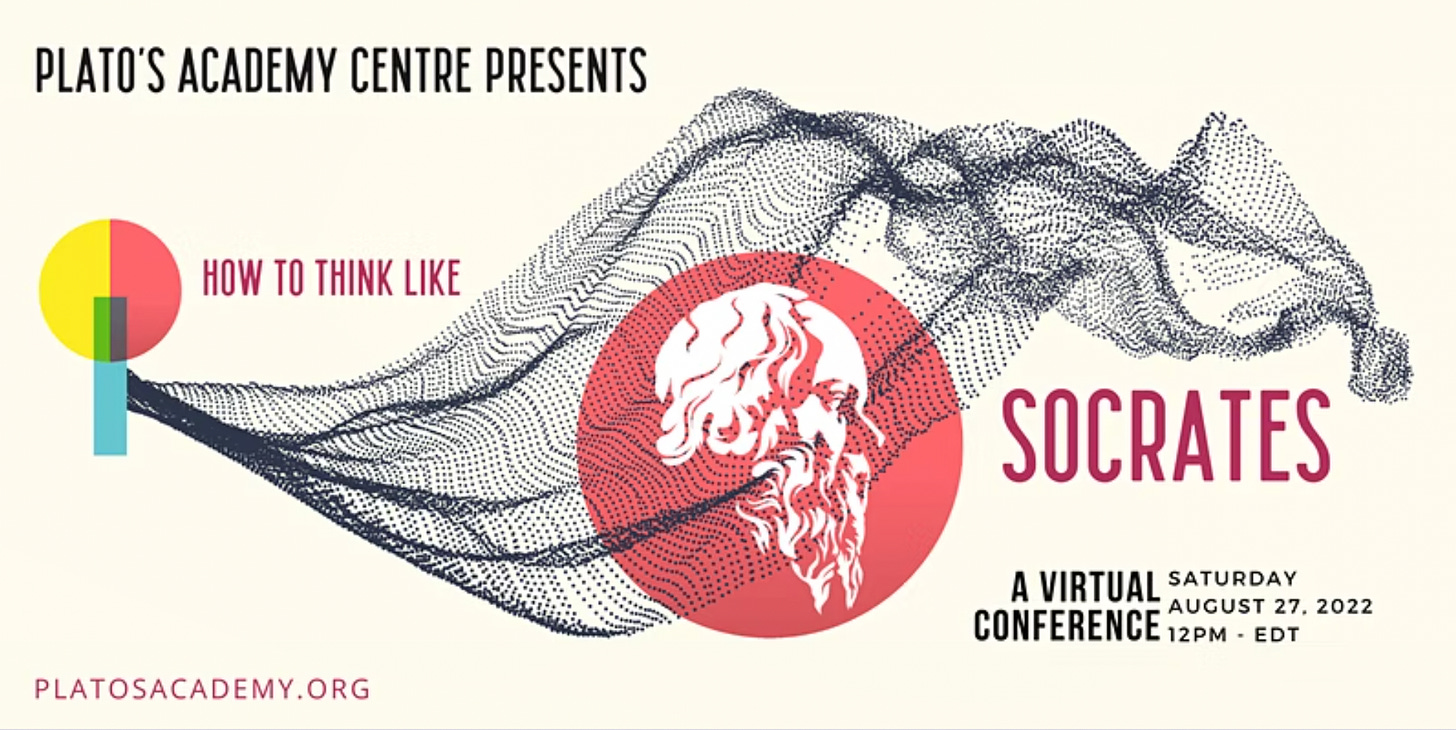
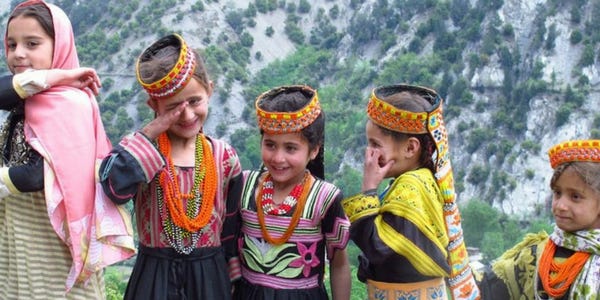
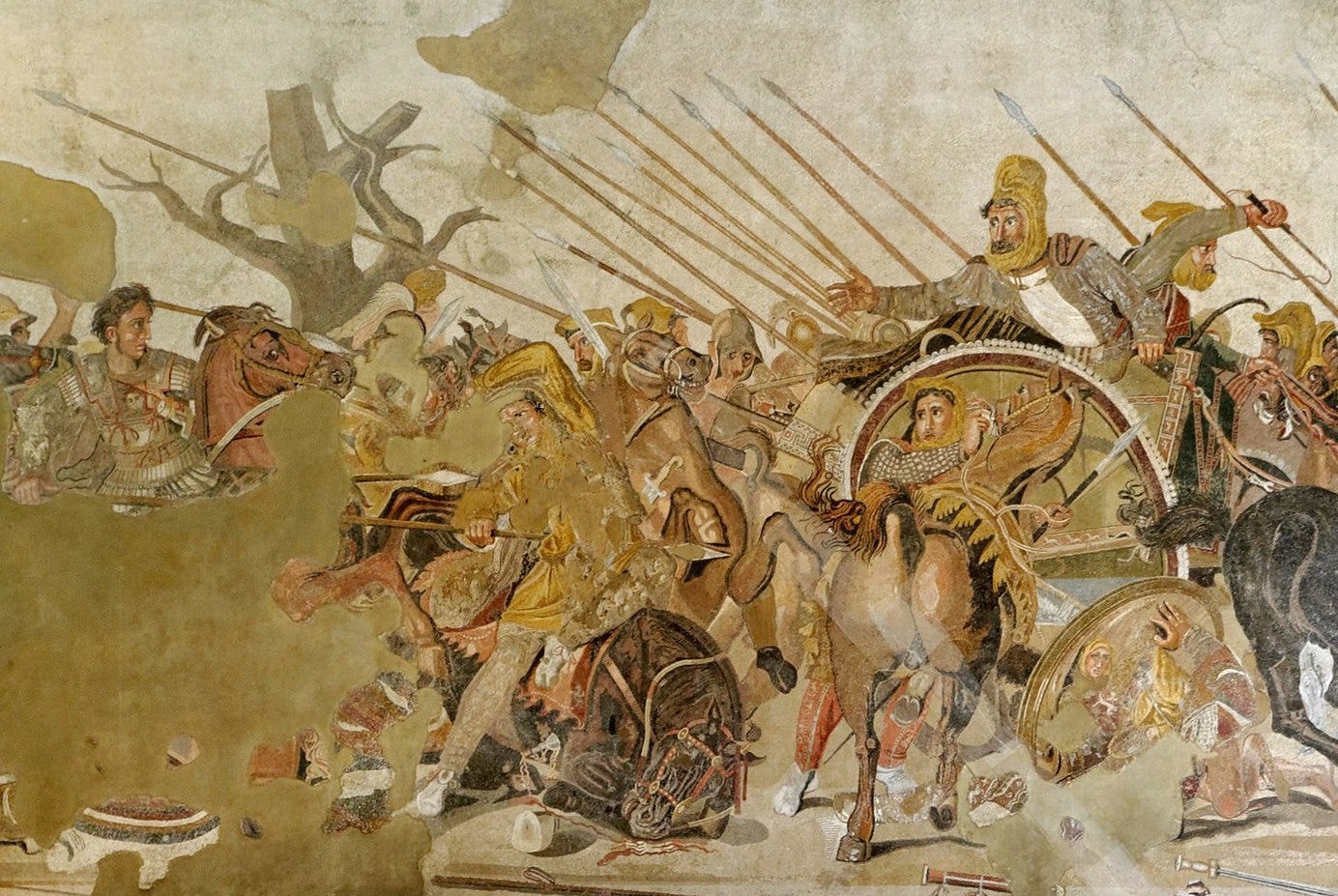
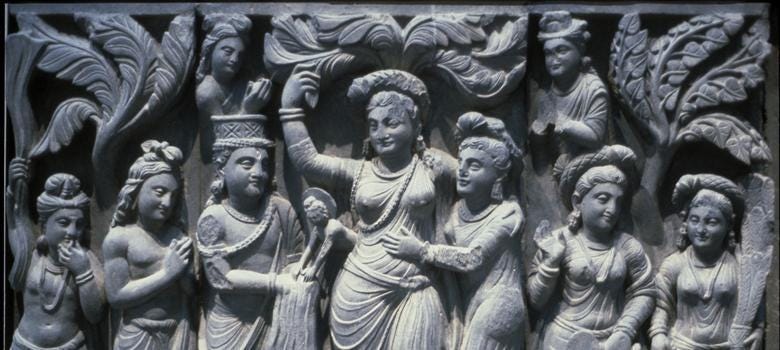
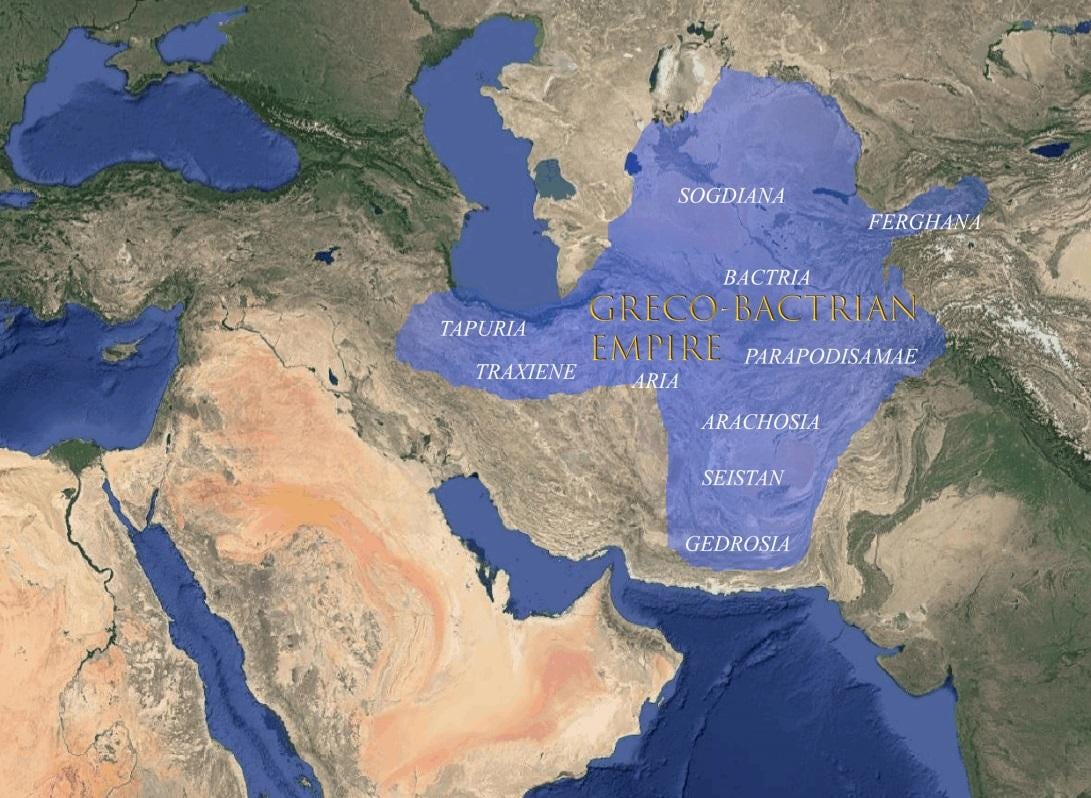

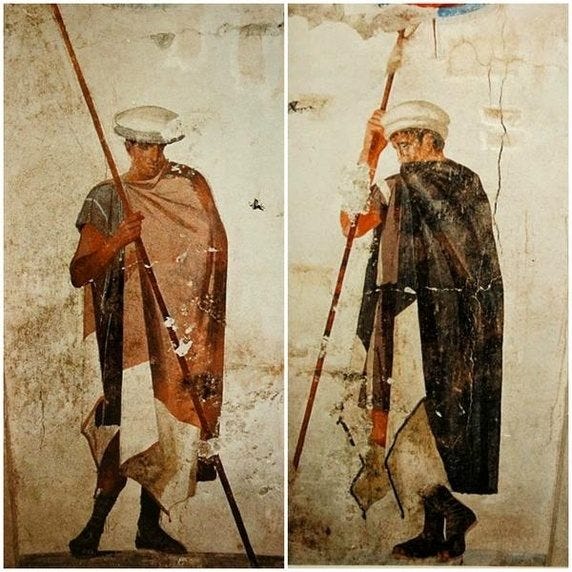
Welcome back, Classical Wisdom! One of the precious few corners of sanity remaining on the Internet. Would that your words of wisdom reach as many readers as possible. The world needs a healthy dose of perspective!
Much better written than the first article I read, and very interesting .... Alexander cast long, deep shadow, and I have no doubt that includes what this article states ... that part of Alexander's army lives on in the pale eyes of Afghani's, Tajikistani's and Uzbek's, as well as parts of their national costumes. For all we know, their national cuisine and a few words in their languages as well ....